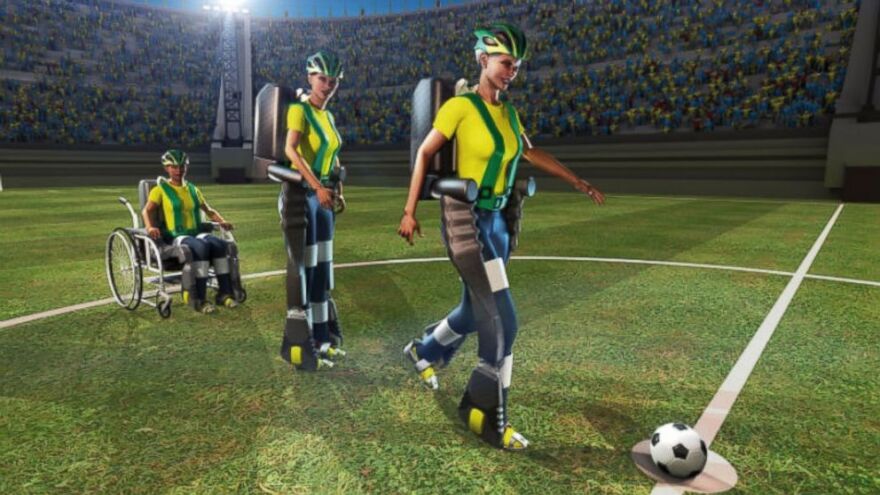Earlier this year we brought you a story about the connection between a mind-controlled robotic suit and soccer's World Cup. We have updated the story at the bottom of the page.
Original story:
The upcoming World Cup is sure to go down in the history books even before the competition starts. This year, a paralyzed teen will use a mind-controlled robotic suit to help stand, walk and make the opening kick to the 2014 World Cup in Brazil.
The suit is an exoskeleton prosthetic that is created by Duke University Neuroscience professor Dr. Miguel Nicolelis. Dr. Nicolelis, a Brazilian scientist and physician, is one of the leading researchers in the field of Brain Machine Interfaces (BMI), which studies how brain waves can be used to control external machines or even send information to another brain.
His projects include teaching monkeys how to use their minds to control two virtual armsand enabling rats to send sensation and motor information from their brain to the brain of another rat. In 2008, his lab successfully trained a monkey at Duke to use his brain to make a robot in Japan to walk on a treadmill without even seeing the robot itself:
http://youtu.be/L8oAz4WS4O0
Dr. Nicolelis's lab has partnered with UC-Davis, University of Kentucky and other labs in Germany, Brazil and Switzerland as part of the non-profit, Walk Again Project which hopes to ultimately give paralyzed patients the chance to move and feel and touch the world again.
The use of a mind-controlled exoskeleton suit by a quadriplegic, paralyzed teenager for the opening ceremonies to the World Cup this summer will be the first human demonstration. A small group of teens are in training now, and the kicker will be selected in upcoming months. It will be the kick seen around the world and a glimpse of the next era of human-machine interactions.
Update Monday 6/9/14:
NPR reports: "On Thursday, a man who is paralyzed will showcase to the whole world what a combination of science, a willing government and dreams can achieve. The person, and who he is is being kept a tightly guarded secret, has a high spinal cord injury that left him unable to move from the waist down. Next week, he won't only walk, but he will kick a football at the opening ceremony of the World Cup."







